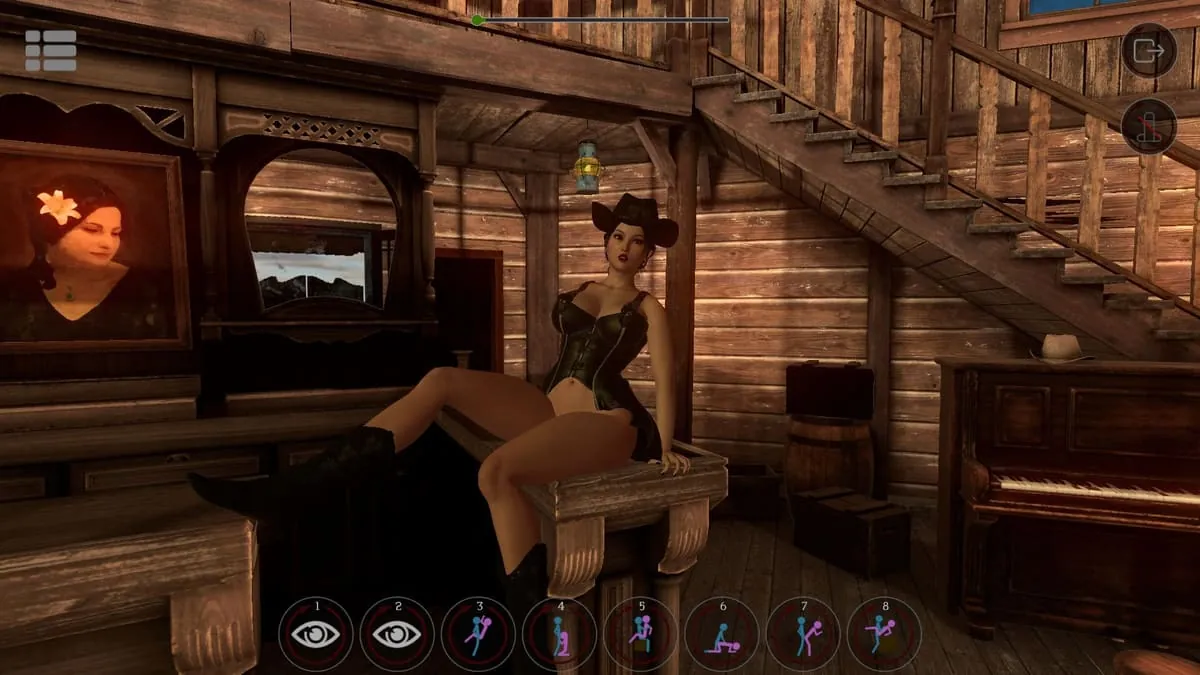
F.I.L.F.
Play F.I.L.F.
F.I.L.F. review
Explore the Story, Gameplay, and Unique Features of F.I.L.F.
F.I.L.F. is a captivating adult-themed game that combines an intriguing storyline with interactive gameplay and stunning visuals. Designed for mature audiences, it immerses players into a world where choices deeply impact relationships and outcomes. Whether you’re new to the game or looking to deepen your experience, this article will guide you through the essential aspects of F.I.L.F., from its narrative to gameplay tips that enhance your journey.
Understanding F.I.L.F.: Storyline and Characters
What is the Core Story of F.I.L.F.?
Let me paint you a picture. You’ve been away for years, building a life elsewhere, when a sense of duty—or maybe just nostalgia—calls you back home. 🏡 That’s the powerful, relatable hook of the F.I.L.F. storyline. You step into the shoes of a protagonist returning to a family that has… well, moved on without you. The dynamic has shifted, and you’re the new variable in a complex equation of past regrets and present tensions.
The core of this adult game narrative is exploration and reconnection. The house you once knew feels both familiar and alien, filled with memories and new secrets. The narrative doesn’t just throw you into chaotic scenarios; it builds methodically. You start by navigating simple, everyday interactions, which gradually peel back the layers of each character’s life. I remember my first playthrough, thinking I was just being a “nice guy” by offering help with chores, only to realize those small acts were the foundation for much deeper, more meaningful conversations later on. It’s a masterclass in slow-burn storytelling. 🔥
What makes the F.I.L.F. storyline so compelling is its grounding in emotional reality. You’re not a superhero; you’re a person trying to mend fractured bonds. The plot is driven by these delicate family dynamics, where a single misspoken word can close a door, and a moment of genuine understanding can open a new path. The game expertly weaves in F.I.L.F. plot twists that feel earned, not cheap. They arise naturally from the characters’ histories and your choices, making those “aha!” moments incredibly satisfying and sometimes heartbreaking. This isn’t just a game; it’s an emotional journey where you truly influence the direction of a family’s story.
Who Are the Main Characters?
The heart and soul of any great interactive story games are its characters, and F.I.L.F. delivers a cast that feels authentic and multi-dimensional. The F.I.L.F. characters are not just archetypes; they are beautifully flawed individuals with their own desires, fears, and personal growth arcs. Getting to know them is the real reward of the game.
The protagonist is your avatar, but the story is truly about the family you re-enter. You have the mother, often struggling with the weight of responsibility and a longing for the passion that life has dulled. Then there are the sisters, each representing a different facet of youth and ambition—one might be the pragmatic, focused student, while the other could be the free-spirited rebel searching for her place in the world. The character development in F.I.L.F. is phenomenal. You witness them evolve based on your interactions, becoming either better versions of themselves or succumbing to their worst impulses, all guided by your influence.
To give you a clearer picture, here’s a breakdown of the central figures you’ll encounter:
| Character | Personality & Role | Player’s Role |
|---|---|---|
| The Mother | The emotional anchor of the family. Often portrayed as resilient but lonely, carrying the burden of holding everything together after your absence. | To offer support and rekindle a connection that time has strained, becoming a confidant and pillar of strength. |
| The Older Sister | Ambitious and sometimes cynical. She’s had to grow up fast and may view your return with skepticism or unresolved past conflict. | To bridge the gap of years, proving your intentions are genuine and helping her reconcile her ambitions with her family ties. |
| The Younger Sister | More impulsive and emotionally open. She represents the innocence and unresolved issues of the past, often wearing her heart on her sleeve. | To provide guidance and understanding, often becoming a protector figure and helping her navigate her tumultuous youth. |
Engaging with these F.I.L.F. characters is a delicate dance. You learn that each has a “public” face and a private world of insecurities. Unlocking that private world is the key to the game. The depth of character development in F.I.L.F. ensures that no one feels like a mere quest-giver; they feel like real people whose lives you are profoundly affecting.
How Do Relationships Develop in the Game?
This is where F.I.L.F. truly shines and separates itself from other interactive story games. The F.I.L.F. relationships are not pre-destined paths; they are organic, fragile, and entirely shaped by you. Every dialogue choice, every favor granted or denied, and every shared moment is a brick you lay on the path to a deeper connection—or a wall you build between you. It’s a system that demands empathy and attention. 💖
The foundation of these relationships is built on trust and familiarity. These are two hidden stats that the game tracks meticulously. Helping a character with a personal problem increases their trust in you. Spending time with them, asking about their day, and remembering small details from previous conversations boosts familiarity. It’s a brilliant system because it mirrors real life. You can’t force a deep bond; you have to nurture it. I learned this the hard way when, in one playthrough, I focused solely on one character, neglecting the others. The consequences were stark: the neglected characters became distant and cold, their storylines stalling because I hadn’t invested the time.
Pro Tip: Don’t rush! The most rewarding F.I.L.F. relationships are built on a series of small, consistent, and genuine interactions. Patience is your greatest asset.
Your choices create key moments that lock in or alter the trajectory of your relationships. These are the pivotal scenes where your accumulated trust and familiarity pay off, allowing you to navigate a tense situation successfully or, if you’ve failed to build that foundation, watching it all fall apart.
Example: Example of a key storyline decision and its impact on character relationships
Imagine a scenario where the older sister is offered a job opportunity in another city—a dream role, but one that would take her away from the family. She’s torn and comes to you for advice. 🚗
- Choice A (Encourage her to go): “You have to chase your dreams. I’ll help handle things here with the family.”
- Impact: This builds immense trust with the sister. She sees you as a true supporter of her ambitions. However, it might slightly decrease familiarity with the mother, who could feel you’re too quick to let a family member leave.
- Choice B (Suggest she stays): “The family needs you here right now. Maybe something local will come up.”
- Impact: This could increase familiarity with the mother, who appreciates you trying to keep the family together. But it severely damages trust with the sister, who views you as another person holding her back, potentially closing off her storyline for a significant period.
This single decision creates a F.I.L.F. plot twist in each character’s personal narrative. It’s these moments that make the F.I.L.F. storyline so deeply personal. Your game becomes a unique tapestry of the relationships you’ve chosen to cultivate and the values you’ve prioritized. The F.I.L.F. relationships are the engine of the entire experience, making you care deeply about the digital lives you are intertwined with, and ensuring that no two stories are ever exactly the same.
F.I.L.F. offers a rich, interactive experience that blends a compelling storyline with engaging gameplay and stunning visuals. Its unique approach to player choice and relationship dynamics creates a deeply personal journey for each player. Whether you’re drawn by the narrative depth or the immersive features, F.I.L.F. stands out as a memorable game worth exploring. Dive in, make your choices, and discover the many paths this game has to offer.























